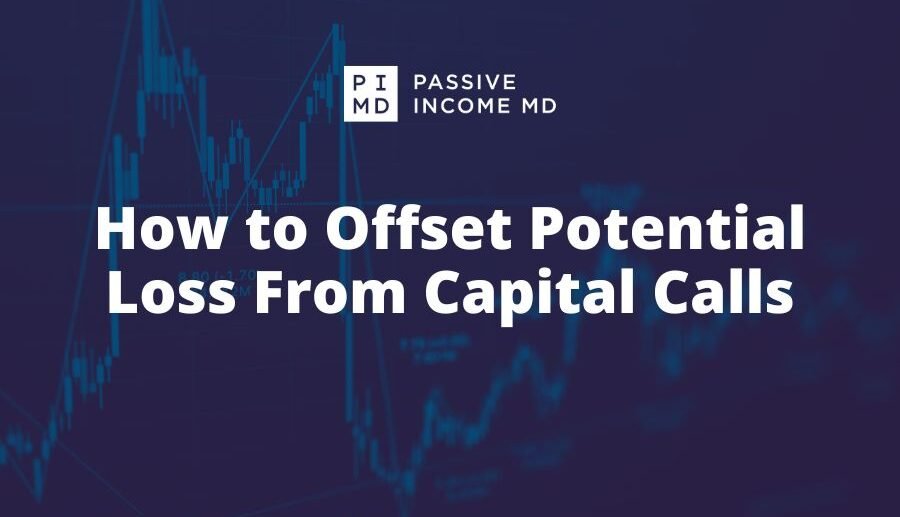How to Offset Potential Loss From Capital Calls

Experiencing financial setbacks can be quite daunting.
Not only do you face monetary losses, but the sense of unpredictability that comes with it can be overwhelming, potentially deterring you from re-entering the investment market.
However, it’s important to understand that setbacks can offer valuable learning opportunities. They allow you to analyze what went wrong, seek advice from other investors, and better prepare yourself for future investments.
Knowing how to effectively respond to a financial setback can transform your life and help you stay on track with your financial objectives. By boosting your confidence and expanding your knowledge, you’ll face setbacks head-on and become a more proficient investor.
There are certain common setbacks to be aware of and ready for. One of them involves the dreaded concept in real estate investment: capital call. Today, we’ll delve into how you can prepare for potential losses from capital calls and the actionable steps to take once they occur. So, gear up, put on your game face, and let’s dive in!
Dealing with Financial Loss
Before we delve into the specifics of capital calls, let’s address the idea of financial loss. There is often a reluctance to discuss investment losses and a fear of confidently re-engaging in investing after an unexpected loss. This hesitation is understandable, as society tends to celebrate wealth accumulation rather than acknowledging capital loss. However, there shouldn’t be any shame associated with financial setbacks.
The reality is that investing has its ebbs and flows. Ignoring the downsides can hinder your ability to reap the benefits. As Warren Buffet famously said, “Be fearful when others are greedy and greedy when others are fearful.”
It’s essential to find ways to regain confidence in investing after a loss. Avoid fixating on market conditions at a specific moment in time. Instead, approach investing with a strategic mindset, acknowledging the potential for mistakes and viewing them as valuable learning experiences that can enhance your expertise. Learning through experience will help you refine your strategy, shore up any weaknesses, and pave the way to lasting wealth on your journey to financial freedom.
Now that we’ve embraced this new mindset, let’s shift our focus to capital calls.
Understanding Capital Calls
For those unfamiliar with the term, capital calls involve collecting funds from limited partners (LPs) or investors for a property when the need arises. Sometimes referred to as “draw downs,” capital calls are essential for stabilizing properties, especially in cases of planned sales or refinances.
How does this process work? Let’s say you’ve committed $10,000 to a limited partnership fund, and the Limited Partnership Agreement (LPA) mandates an immediate contribution of $3,000, with the remaining $7,000 reserved for future calls. Ideally, you would receive returns on your investment solely based on the initial $3,000. However, there are instances where additional capital contributions beyond your initial commitment may be necessary.
You might wonder why a sponsor would need to request additional funds. Several scenarios could trigger a capital call, such as a sudden and prolonged decline in occupancy rates, unexpected costs in a redevelopment project, or changing financing requirements for the property due to factors like rising interest rates, inflation, or increased insurance costs.
In recent years, the frequency of capital calls has increased due to market conditions, such as the Federal Reserve raising interest rates. This has led to higher volatility in the real estate market, making it more challenging to make sound investment decisions when faced with uncertain or frequent capital calls.
Preparing for Capital Calls
Depending on the investment agreement, capital calls could impact your total ownership of the property. If more investors contribute funds, your stake in the property may decrease. It’s crucial to understand how capital calls operate in any deal you’re considering.
Some sponsors or General Partners (GPs) may use capital calls strategically. For example, they might present participation in capital calls as voluntary, but the fine print could outline consequences like complete dilution of ownership rights for non-participating investors. Be vigilant for such tactics and carefully review the LPA documents to grasp the implications of capital calls in a specific deal.
Once you’re well-informed about the mechanics of capital calls in an investment, you need to prepare for potential scenarios. Are you willing to dilute your investment? Can you afford to contribute more funds in the event of a capital call? These are critical questions to consider.
Ultimately, you must trust the operator of the investment, as there’s limited control over preventing capital calls once you’re committed to a deal. Due diligence is paramount, so ensure you have faith in the operator’s abilities.
Responding to Capital Calls
When faced with capital calls, it’s essential to remain actively engaged with the investment. Capital calls may arise due to poor property management, such as leasing challenges, maintenance delays, unpaid bills, or eviction issues. If you encounter an unexpected capital call, it could signal underlying problems with property management.
Another aspect to be aware of is the Waterfall Split Adjustment, where the GP adjusts the distribution split to incentivize additional capital contributions. Evaluate how such adjustments could impact your investment and whether they retroactively affect your initial position.
The key takeaway is to maintain an active investor status and continuously reassess the investment’s performance.
Mitigating Potential Losses
While market volatility and capital calls may be unpredictable, there are steps you can take to be a proactive investor:
1. Review Operational Efficiencies
Assess the operational decisions made on your properties. Look for opportunities to enhance efficiency, whether through a change in property management or streamlining business operations to reduce costs and minimize the risk of capital calls.
2. Monitor Property Performance
Stay vigilant about property management and promptly address any issues that arise. Maintain regular communication with sponsors and investors to provide feedback and address concerns that could impact the investment’s success.
3. Scrutinize the Agreement Terms
Thoroughly read and understand the terms of the investment agreement, especially regarding capital calls. Be aware of any clauses that could lead to dilution or other unfavorable outcomes in the event of a capital call.
4. Assess Capital Call Likelihood
Prior to committing to a deal, assess the probability of capital calls occurring based on factors like property occupancy rates, the track record of GPs and property managers, and other indicators of operational efficiency. Understanding this likelihood will help you anticipate potential losses and make informed decisions.
5. Diversify Your Portfolio
Diversification is key, especially in real estate investments prone to capital calls. Spreading your investments across different markets and asset classes can help mitigate the impact of market fluctuations and capital calls on your overall portfolio.
Continual Learning
Herbert Spencer once said, “The great aim of education is not knowledge but action.” Viewing capital calls as opportunities for education rather than setbacks can empower you to take informed actions in your investing journey.
Learning through experience and adapting to investment challenges will deepen your understanding of passive income investing. If you’re committed to lifelong learning, consider joining the Passive Real Estate Academy (PREA), where you can engage with like-minded individuals, evaluate investment opportunities, and build lasting wealth together.
Embrace the mindset of continuous learning and proactive investing to navigate financial setbacks with confidence. Thank you for visiting Passive Income MD, and we look forward to seeing you again soon.
Peter Kim, MD is the founder of Passive Income MD, the creator of Passive Real Estate Academy, and offers weekly education through his Monday podcast, the Passive Income MD Podcast. Join our community at the Passive Income Doc Facebook Group.


